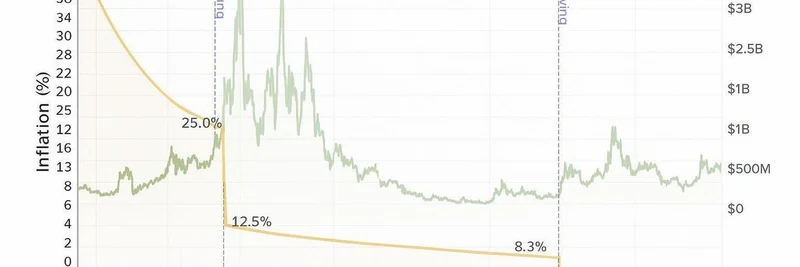If you've been scrolling through Crypto Twitter lately, you might have caught wind of the latest episode from The Chopping Block podcast, hosted by industry heavyweights like Haseeb Qureshi, Robert Leshner, Tarun Chitra, and Tom Schmidt. Shared by Haseeb himself, this episode dives deep into some hot-button topics shaking up the blockchain world. From the comeback of Initial Coin Offerings (ICOs) to the drama surrounding influencer IcoBeast and MegaETH, plus updates on Uniswap and a bizarre MEV bot trial – it's a must-listen for anyone in the meme token space. Let's break it down and see how these developments could impact your next meme coin adventure.
First off, the episode kicks things off with the IcoBeast x MegaETH saga. For those not in the loop, IcoBeast is a well-known crypto influencer and airdrop farmer who snagged a hefty allocation in MegaETH's ICO – we're talking nearly $1 million at pre-market prices. But things went south when he publicly tweeted about hedging his position to lock in profits. MegaETH, a high-performance Ethereum layer aiming for lightning-fast transactions, revoked his allocation faster than you can say "rug pull." This sparked a massive debate: Is it fair for projects to claw back tokens based on what investors say online? In the meme token world, where influencers often pump and dump, this highlights the risks of tying allocations to behavior. If you're launching a meme coin, think twice about how you distribute tokens – transparency and clear rules can prevent similar blowups.
Moving on, the hosts compare farming airdrops to ICOs, framing it through the lens of Customer Acquisition Cost (CAC). CAC is basically how much it costs a project to bring in new users. Airdrops have been the go-to for meme tokens, dropping free coins to early adopters to build hype and community. But as the episode points out, conversion rates from airdrop farmers – folks who grind testnets for rewards – are often dismal. They grab the tokens and bounce, leaving little long-term value. ICOs, on the other hand, feel more like traditional investments. Buyers put real money in, aligning incentives for promotion and growth. For meme creators, this could signal a shift: Maybe blend ICO-style raises with fair launches to attract committed holders rather than fly-by-night farmers. It's a way to fund development while keeping the viral, community-driven spirit alive.
Then there's Uniswap's big move: turning on the fee switch and "UNIfying" its structure. Uniswap, the decentralized exchange where most meme tokens first hit the market, has long distributed fees to liquidity providers but not token holders. Now, they're flipping the switch, sharing a portion of fees with UNI holders. This "unification" aims to streamline governance and make UNI more attractive. For meme traders, this could mean higher costs on swaps, but also a more sustainable ecosystem. If you're sniping new memes on Uniswap, keep an eye on how these fees evolve – they might eat into your gains on high-volume trades. The hosts also touch on legal hurdles, noting how this move navigates regulatory minefields, which is crucial as meme tokens often skate close to securities laws.
The episode celebrates Uniswap's milestone too, reminding us how far DeFi has come. From a scrappy DEX to a powerhouse, it's the backbone for countless meme launches. If you're building a knowledge base on meme tokens, Uniswap's evolution is a prime case study in balancing innovation with compliance.
Finally, the MEV bot trial steals the show – literally bringing jurors to tears over block ordering logic. MEV, or Miner Extractable Value (now Maximal Extractable Value), refers to the profits bots make by reordering transactions in blocks. Think sandwich attacks on your meme token buys. The trial involves "MEV bros" accused of exploiting this, and the courtroom drama is wild: Jurors struggling with concepts like front-running and atomic transactions. It's a reminder that as meme trading gets more sophisticated, MEV protection tools – like private mempools or flashbots – are essential. For blockchain practitioners, understanding MEV can enhance your strategies, whether defending against bots or even building them ethically.
Overall, this Chopping Block episode is packed with insights that resonate deeply in the meme token arena. As airdrop season winds down, ICOs might stage a comeback, offering a more aligned way to bootstrap projects. Uniswap's updates could reshape trading dynamics, and MEV remains a double-edged sword. If you're looking to level up your meme game, check out the full episode on YouTube or your favorite podcast app. Stay tuned to Meme Insider for more breakdowns on the latest in meme tokens and blockchain tech. What do you think – are ICOs the future for memes, or will airdrops reign supreme? Drop your thoughts in the comments!


